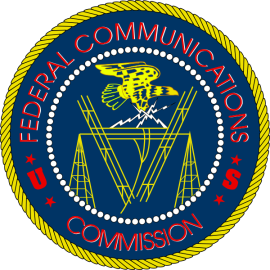FCC Update March 2012: New rules and proposals to expand community radio
 FCC Update: New rules and proposals to expand community radio
FCC Update: New rules and proposals to expand community radio
On March 19, we celebrated a policy victory when the FCC took two major actions to expand community radio. First, the agency announced rules to deal with a backlog of pending applications for translators (which repeat the signals of other stations). After nine years, the FCC is dismissing thousands of these applications to clear the airwaves for community radio! Second, the FCC released proposed rules for future Low Power FM (LPFM) stations, asking the public to comment on the proposals.
Both FCC actions have big implications for community stations, so we break down all the wonky details on translators and share our best guess on an application window timeline here.
The Trouble with Translators
The new FCC rules deal with a backlog of over six thousand applications for translators (repeater stations) pending since 2003. To make space for community radio, the FCC voted to dismiss many of the pending translator applications in 80 radio markets where the FCC has determined there is not enough room for future LPFM stations. In these "spectrum limited" markets, the FCC will dismiss all translator applications that would preclude future LPFM stations in the urban core of the market. Outside the urban core, the FCC will dismiss all translator applications in these markets unless the applicants can prove that there is still room for an LPFM station at their location. In other markets, the FCC determined there is already sufficent room for LPFM, so all translator applications will be processed. According to the FCC, these "spectrum available" markets have room for both translators and LPFM, so no special limits were needed. Another key provision of the new translator rules is a cap limiting each translator applicant to 50 applications total, as well as only one per market.
What do the translator rules mean for community radio? In many large and mid-sized markets, such as Seattle, Houston and Phoenix, dismissing the translator applications makes a huge difference. Channels that would have been used by translators to repeat the same content all over the country are now open for community radio! Unfortunately, dismissing translator applications doesn't guarantee that there will be room for community radio everywhere. In the most crowded radio markets, such as New York, Los Angeles, and Chicago, we don't expect many (if any) channels for LPFM within city limits. That's because rules for LPFM are stricter than rules for translators, so not every channel freed up by a translator application can go to an LPFM station.
To learn more about translators, check out the full story.
Next steps for LPFM at the FCC
The second FCC item released this month was a set of proposed rules for LPFM. These include proposed rules on many aspects of running a community radio station -- where LPFM stations can be located, what power levels stations can use, who is eligible to apply, and how the FCC selects among competing applications. Prometheus is evaluating the proposals and we will be sharing our analysis soon -- stay tuned! In the coming weeks, we will also release an FCC comment tool to make it easier for you to send your own comments to the FCC.
Once the FCC reviews the comments, the agency will vote on final rules for the LPFM service. We expect the rulemaking procedure to take at least several months, probably lasting through the summer. After that, the FCC will announce a timeline for accepting applications and make the applications available online. We hope the FCC will allow applicants at least a few months to prepare their applications once the rules are announced. So our best guess is that an application window won't happen until the very end of 2012, at the earliest. If you're planning to apply, be sure to sign up with Prometheus on our "station hopeful" list so we can give you updates.
